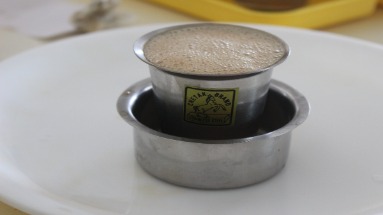Drinking coffee in the evening is a common practice for many people, whether to stay awake during late-night work sessions or simply to enjoy a warm and comforting beverage after dinner. However, when it comes to filter coffee specifically, there are a few factors to consider before indulging in a cup late at night.
Understanding Filter Coffee
Filter coffee, also known as drip coffee, is made by pouring hot water over ground coffee beans contained in a filter or brew basket. The water then drips through the coffee grounds and filter, extracting flavors and oils along the way. The resulting brew is typically smooth, aromatic, and enjoyed by coffee enthusiasts around the world.
The Effects of Caffeine
One of the primary concerns about drinking coffee, including filter coffee, at night is its caffeine content. Caffeine is a natural stimulant found in coffee beans that can increase alertness, improve focus, and boost energy levels. While these effects are desirable during the day, consuming caffeine too close to bedtime can interfere with sleep quality and duration.
Caffeine Sensitivity
Individual sensitivity to caffeine varies widely among people. Some individuals may be highly sensitive to even small amounts of caffeine and experience sleep disturbances after consuming coffee in the evening. Others may have a higher tolerance for caffeine and be less affected by its stimulating effects. It’s essential to know your own caffeine sensitivity and how it may impact your ability to fall asleep and stay asleep at night.
Timing Matters
The timing of coffee consumption is crucial when considering its potential impact on sleep. Caffeine has a half-life of approximately 3 to 7 hours, meaning it takes several hours for your body to metabolize and eliminate half of the caffeine you’ve consumed. To minimize its effects on sleep, it’s generally recommended to avoid consuming coffee, including filter coffee, within 6 hours of bedtime. For some individuals, this window may need to be even longer to ensure restful sleep.
Decaffeinated Options
If you enjoy the taste of coffee but are sensitive to caffeine or prefer not to consume it late at night, consider opting for decaffeinated filter coffee. Decaffeinated coffee undergoes a process to remove most of the caffeine while preserving the flavor and aroma of the beans. While it may not provide the same stimulating effects as regular coffee, decaffeinated filter coffee can still be a satisfying and enjoyable beverage to enjoy in the evening without interfering with sleep.
In conclusion, while filter coffee can be a delightful and comforting beverage to enjoy, especially in the evening, it’s essential to consider its caffeine content and how it may affect your sleep. If you’re sensitive to caffeine or concerned about its impact on your sleep quality, consider limiting or avoiding filter coffee in the hours leading up to bedtime. Alternatively, opt for decaffeinated filter coffee as a satisfying and sleep-friendly alternative. By being mindful of your caffeine intake and timing your coffee consumption appropriately, you can continue to enjoy the rich flavors and aromas of filter coffee while prioritizing restful and rejuvenating sleep.

